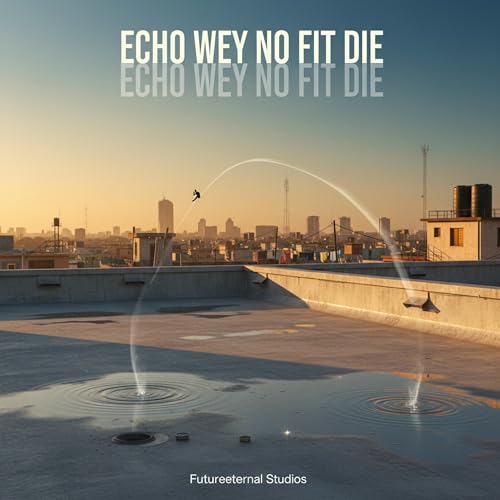
Echo Wey No Fit Die
カートのアイテムが多すぎます
カートに追加できませんでした。
ウィッシュリストに追加できませんでした。
ほしい物リストの削除に失敗しました。
ポッドキャストのフォローに失敗しました
ポッドキャストのフォロー解除に失敗しました
-
ナレーター:
-
著者:
このコンテンツについて
The final chapter provides resolution while maintaining the poetic, musical quality of the entire narrative. As specified in your prompt, it shows the fade-out with empty rooftops but the sorrow-sample still echoing in the gutters below. Aṣàkẹ́ explains how the protests led to real change: the release of Ìyábọ́, the Èkó Tower prisoners, and finally Rírì; the end of the sound ban; and the resignation of the Minister of Information.
The story comes full circle when Aṣàkẹ́ returns to the rusted water tank where everything began, now empty but still resonating with their music. She describes how the bass line continues through the drain system and water pipes, showing that their movement has become something that transcends their physical presence - a wave that continues traveling even after they stop pushing.
The narration includes your specified sign-off line: "Because the bass dey gbim-gbim for puddle even when speaker don go," which beautifully captures the central theme of sound and resistance continuing beyond their original creators.
The story concludes exactly as requested with Aṣàkẹ́ hearing a distant whistle from another rooftop - "Maybe na Táíwò dey practice new song, maybe na tomorrow dey call us to new battle" - suggesting that while this chapter closes, the story continues in new forms, with the "echo wey no fit die" just beginning its journey.


